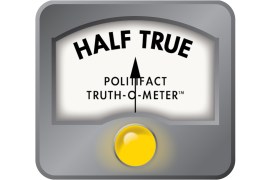Public Library of Science Launches Free Online Journal
As expected, the Public Library of Science on Sunday launched an online scientific journal through which all content is free, the AP/San Jose Mercury News reports (Elias, AP/San Jose Mercury News, 10/17). The journal is an effort to significantly increase the number of people who have access to scientific research, which typically requires a subscription to a journal. Instead of selling subscriptions, PLoS will charge researchers about $1,500 per article for work to appear in the online publications (Kaiser Daily Health Policy Report, 8/5). PLoS, which received a $9 million grant from the Gordon and Betty Moore Foundation to develop the online journal, also plans to launch a medical journal next year. Supporters -- including scientists who say they have been "priced out" of access to many journals and libraries, which now pay for 85% of subscriptions to academic journals -- praise the free journal, the AP/Mercury News reports. "PLoS will certainly benefit a lot of institutions that had their budgets crunched," Barbara Epstein, interim director of the University of Pittsburgh Falk Library of Health Sciences, said. However, critics of PLoS question whether researchers will pay $1,500 to publish new research in the free journal, adding that it could be a "budget-killer" for research institutions that publish thousands of papers per year, according to the AP/Mercury News. PLoS founders hope to persuade federal agencies to assume the cost of publishing in the free journal because much research is publicly funded.
500,000 Access First Issue
In the journal's first issue, Duke University researchers reported that they had trained monkeys with brain implants to control a robotic arm with their thoughts, which could someday help people who are paralyzed. By Monday, the Web site had received 500,000 hits and the paper had been downloaded about 80,000 times. In addition, the research received worldwide media coverage. Michael Eisen, PLoS co-founder, said, "Nothing else has ever argued so strongly for open-access publishing" (AP/San Jose Mercury News, 10/17).






